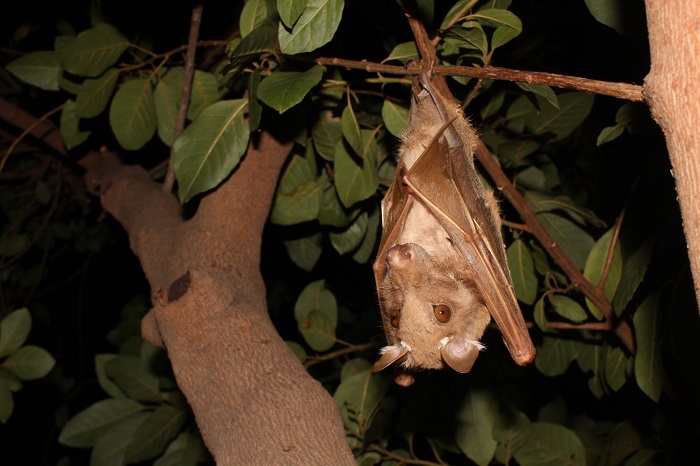The University of Pretoria is involved in several projects related to the COVID-19 pandemic.
In particular, its Faculty of Health Sciences is involved in close to 30 projects. The pandemic has caused worldwide disruption, resulting in lockdowns in many countries due to the infectious nature of the virus. More than 120 000 deaths have been recorded globally.
“We have far-reaching expertise in a range of areas and are collaborating with various organisations, which has resulted in benefits,” said Professor Tiaan de Jager, Dean of UP’s Faculty of Health Sciences. “This pandemic has strengthened collaborative efforts, not only interdisciplinary research, but across borders, universities and other organisations.
If these collaborative efforts are sustained post COVID-19, it will push research to the level where it should be. Interdisciplinary collaborations highlight the single goal we all have now, to address this pandemic. We all share the same goal.” He explained that large teams working on projects bring diverse knowledge, which strengthens the research being done.

UP's Centre for Viral Zoonosis is conducting research on bats as a potential carrier of the virus. Photo: Dr Low de Vries
Some of the projects the Faculty is involved in include:
Clinical Trials and Testing
- A World Health Organization multi-centre clinical trial study for Africa is looking at various antiviral compounds. The objective is to provide reliable estimates of the effects of antiviral treatments and chloroquine or hydroxychloroquine on in-hospital mortality. Five different treatment regimens will be tested. The study has been designed with an adaptive approach to allow for new treatments to be added as needed or current treatments being stopped if required.
- The South African Medical Research Council is leading a study on various rapid test methods. UP is one of the partners that will assist with providing access to patients and specimens.
- The Division of Infectious Diseases (Department of Internal Medicine) is leading a study in collaboration with Leicester University to investigate testing for COVID-19 by wearing a face mask for 30 minutes. A COVID-19 mask was developed for this, and other respiratory pathogens such as Tuberculosis mycobacterium can also be identified.
- The Department of Medical Virology established an accredited testing facility with the National Health Laboratory Service and is fully functional. It provides polymerase chain reaction (PCR) testing and services at the Tshwane District Hospital and Steve Biko Academic Hospital and all other healthcare centres in Tshwane as well as in Limpopo and Mpumalanga.
- Systems and protocols have been put in place in collaboration with the Gauteng Department of Health to screen, manage and treat COVID-19 patients, including Steve Biko Academic Hospital, Tshwane District Hospital and Kalafong Hospital. A COVID-19 response team was identified to oversee areas such as clinical triage, emergency medicine, epidemiology and surveillance. Protocols include intubation, clinical care and severity score, and psychosocial support for healthcare workers and patients.
Community Health and Counselling
- The UP Tshwane COVID-19 Care Helpline has been established and is serviced by doctors and registrars from UP. The toll-free number, 0800 611 197, is available from Monday to Friday, from 08:00-17:00. It provides guidance to referral testing centres, information on COVID-19, and guidance on self-care. It focuses on people living in the Tshwane district.
- The Faculty has developed guidelines to support staff and students with mental health-related issues. It has also produced a series of videos aimed at healthcare workers and students.
- The Centre for Viral Zoonosis is conducting research on bats as a potential carrier of the virus and is working with the National Institute for Communicable Diseases on COVID-19 related initiatives.
- The Faculty is collaborating with the Gavan Institute in Sydney, Australia, in profiling the risk of South Africans, using whole genome profiles.
Capacity Support and Volunteering
- Senior medical students have been deployed at the Steve Biko Academic Hospital and Tshwane District Hospital, where they support doctors with various COVID-19 related projects, without being exposed to the frontline. Students assisted with establishing an online platform with COVID-19-related research publications.
- A cellphone/web-based application has been developed for Steve Biko cluster healthcare workers to track COVID-19-related symptoms daily and, if required, it refers them for testing.
- The Faculty of Health Sciences has been proactive in installing sanitisers throughout its facilities, and developing education material, producing videos and video clips on preventative measures.
- The Faculty is involved in the 3D-printing of 10 000 face shields to support the Gauteng Health Department in supplying personal protective equipment to healthcare workers.
In other areas of the University, the Department of Library Services’ MakerSpace Centre is producing 3D-printed frames for face shields for two hospital groups. Additionally, among other projects, a team from the Department of Statistics, in collaboration with international universities, has developed what is believed to be the first interactive app in the country that provides real-time data on COVID-19 using R-Shiny (a statistical software package).

Get Social With Us
Download the UP Mobile App